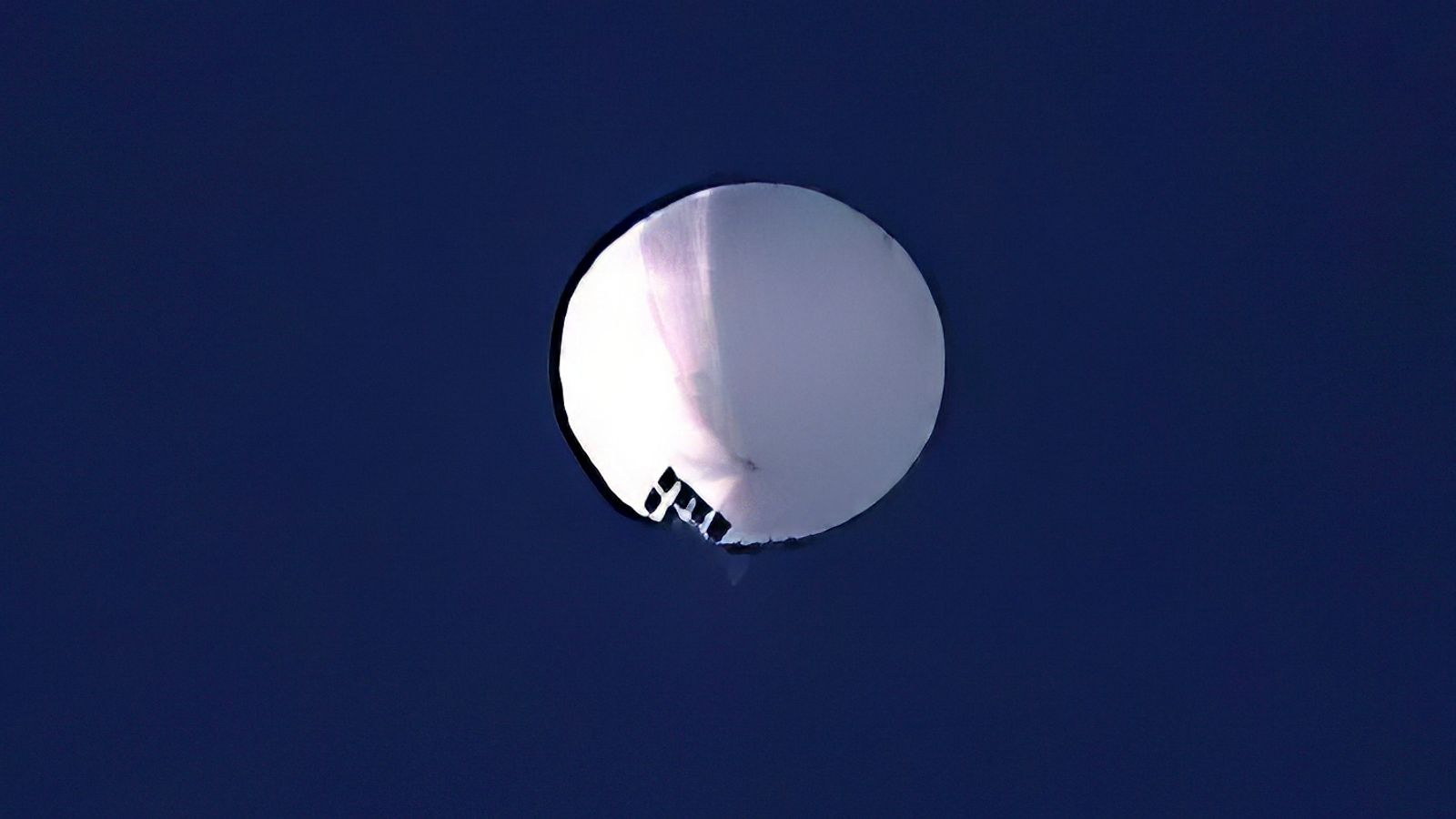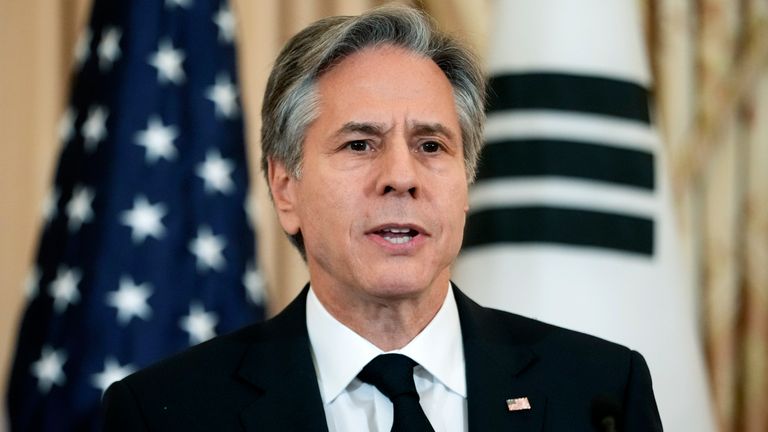US secretary of state Antony Blinken said that China’s spy balloon was “detrimental” to “substantive discussions” that were due to take place on his visit.
Mr Blinken said he spoke to the director of the Chinese Communist Party’s Central Foreign Affairs Office, Wang Yi, on Friday about the postponement of the visit, saying: “Conditions were not conducive for a constructive visit at this time.”
A spokesperson for the secretary of state said earlier that Mr Blinken “indicated he would plan to travel” to China “at the earliest opportunity when conditions allow”.
US officials also “noted” China’s statement of regret but said “the presence of this balloon in our airspace is a clear violation of our sovereignty, as well as international law, and it is unacceptable that this has occurred”.
Mr Blinken was prepared to depart for China tonight before the trip was postponed, Sky News understands.
The secretary of state’s comments come as US authorities confirmed a balloon tracked across the US in recent days was a Chinese surveillance device.
In a press conference today, the US defence department said the balloon is heading eastwards but poses “no physical or military threat” to civilians.
The Pentagon’s press secretary would not confirm the current location of the balloon, which is operating at around 60,000ft.
Watch:
Future Wars: Could there ever be a conflict between the US and China?
There is also no evidence of any nuclear or radioactive material on board but it has the ability to be manoeuvred, according to Brigadier General Pat Ryder.
He also rejected Chinese claims that the balloon was in fact a “civilian airship” that had strayed into American airspace.
The Foreign Ministry in Beijing admitted the balloon had come from China – but said it was for meteorological and other scientific research.
The US authorities said it now knows the object – spotted over Billings, Montana, on Wednesday, close to one of the US’s three nuclear missile silo fields at Malmstrom Air Force Base – was a Chinese balloon flying over sensitive sites to collect information.
The Pentagon spokesperson said it is “monitoring the situation closely and will continue to review options”.
The balloon will probably remain over the US for a few days, the spokesperson added.
US officials also confirmed military intelligence had previously seen similar surveillance balloons elsewhere.
The object is believed to have flown over the Aleutian Islands, off the coast of Alaska, and through Canada before entering the US.
Military and defence leaders had considered shooting the balloon out of the sky but decided against it due to the safety risk from falling debris.
US defence secretary Lloyd Austin convened a meeting of senior military and defence leaders to review the threat profile of the balloon and possible responses, which were presented to US President Joe Biden on Wednesday.
Read more:
What are spy balloons?
President Biden, speaking at a White House conference about jobs earlier today, refused to answer questions on the topic.
The US has engaged Chinese officials “with urgency” and communicated the seriousness of the situation.
China and the US have experienced tensions of late, clashing over Taiwan and China’s human rights record and its military activity in the South China Sea.




